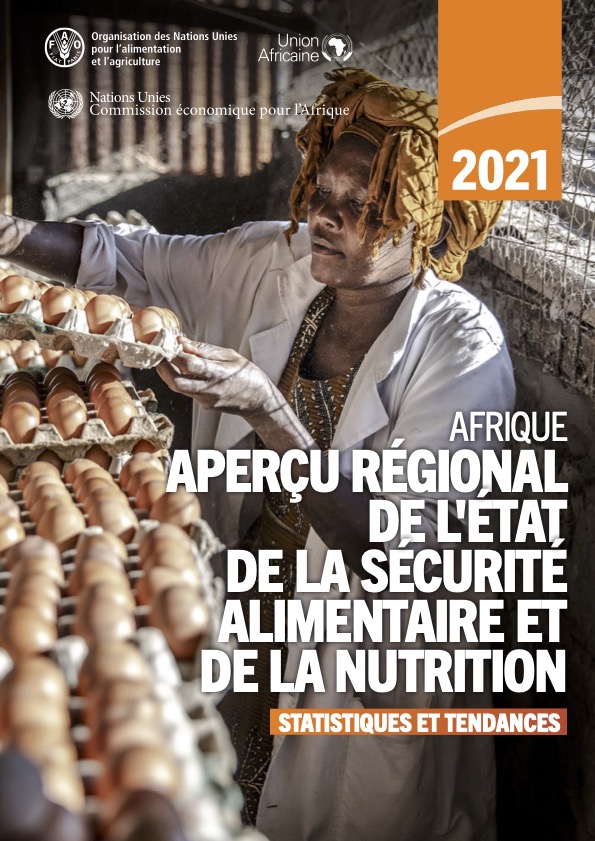Resource information
L'Afrique n'est pas sur la bonne voie pour atteindre les cibles de l'objectif de développement durable (ODD) 2 visant à éliminer la faim et à assurer l'accès de tous à une alimentation saine, nutritive et suffisante tout au long de l'année, et à mettre fin à toutes les formes de malnutrition. Les estimations les plus récentes montrent que 281,6 millions de personnes sur le continent, soit plus d'un cinquième de la population, ont été confrontées à la faim en 2020, soit 46,3 millions de plus qu'en 2019. Cette détérioration poursuit une tendance amorcée en 2014, après une période prolongée d'amélioration de la sécurité alimentaire. Outre la faim, des millions d'Africains souffrent de carences généralisées en micronutriments, tandis que le surpoids et l'obésité sont déjà des problèmes de santé publique importants dans de nombreux pays. Les progrès vers la réalisation des objectifs mondiaux en matière de nutrition d'ici 2030 restent d'une lenteur inacceptable.

